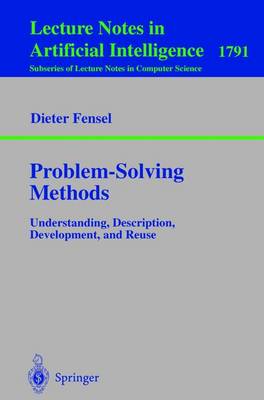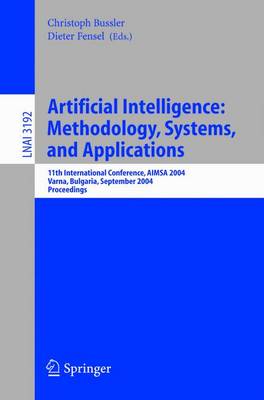Lecture Notes in Computer Science
2 primary works
Book 1791
Researchers in Artificial Intelligence have traditionally been classified into two categories: the “neaties” and the “scruffies”. According to the scruffies, the neaties concentrate on building elegant formal frameworks, whose properties are beautifully expressed by means of definitions, lemmas, and theorems, but which are of little or no use when tackling real-world problems. The scruffies are described (by the neaties) as those researchers who build superficially impressive systems that may perform extremely well on one particular case study, but whose properties and underlying theories are hidden in their implementation, if they exist at all. As a life-long, non-card-carrying scruffy, I was naturally a bit suspicious when I first started collaborating with Dieter Fensel, whose work bears all the formal hallmarks of a true neaty. Even more alarming, his primary research goal was to provide sound, formal foundations to the area of knowledge-based systems, a traditional stronghold of the scruffies - one of whom had famously declared it “an art”, thus attempting to place it outside the range of the neaties (and to a large extent succeeding in doing so).
Book 3192
Artificial Intelligence: Methodology, Systems, and Applications
by Christoph Bussler and Dieter Fensel
Published 23 August 2004
This book constitutes the refereed proceedings of the 11th International Conference on Artificial Intelligence: Methodology, Systems, and Applications, AIMSA 2004, held in Varna, Bulgaria in September 2004. The 52 revised full papers presented were carefully reviewed and selected from 176 submissions. The papers are organized in topical sections on ontology engineering, semantic Web services, knowledge representation and processing, machine learning and data mining, natural language processing, soft computing, neural networks, e-learning systems, multiagent systems, pattern recognition, intelligent decision making, and information retrieval.

